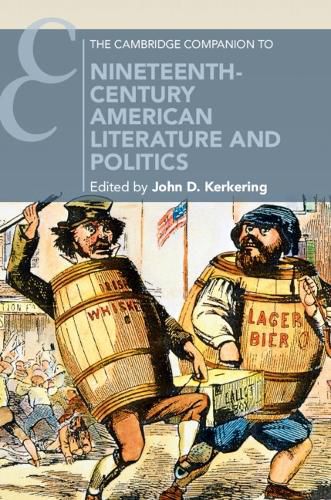Readings Newsletter
Become a Readings Member to make your shopping experience even easier.
Sign in or sign up for free!
You’re not far away from qualifying for FREE standard shipping within Australia
You’ve qualified for FREE standard shipping within Australia
The cart is loading…






The Cambridge Companion to Nineteenth-Century American Literature and Politics addresses the political contexts in which nineteenth-century American literature was conceived, consumed, and criticized. Individual chapters examine how US literature from this period engaged with broad political concepts and urgent political issues, such as liberalism, conservatism, radicalism, nationalism, communitarianism, sovereignty, religious liberty, partisanship and factionalism, slavery, segregation, immigration, territorial disputes, voting rights, gendered spheres, and urban/rural tensions. Chapters on literary genres and forms show how poetry, drama, fiction, oratory, and nonfiction participated in political debate. The volume's introduction situates these chapters in relation to two larger disciplines, the history of political thought and literary history. This Companion provides a valuable resource for students and instructors interested in Nineteenth-Century American literature and politics.
$9.00 standard shipping within Australia
FREE standard shipping within Australia for orders over $100.00
Express & International shipping calculated at checkout
The Cambridge Companion to Nineteenth-Century American Literature and Politics addresses the political contexts in which nineteenth-century American literature was conceived, consumed, and criticized. Individual chapters examine how US literature from this period engaged with broad political concepts and urgent political issues, such as liberalism, conservatism, radicalism, nationalism, communitarianism, sovereignty, religious liberty, partisanship and factionalism, slavery, segregation, immigration, territorial disputes, voting rights, gendered spheres, and urban/rural tensions. Chapters on literary genres and forms show how poetry, drama, fiction, oratory, and nonfiction participated in political debate. The volume's introduction situates these chapters in relation to two larger disciplines, the history of political thought and literary history. This Companion provides a valuable resource for students and instructors interested in Nineteenth-Century American literature and politics.